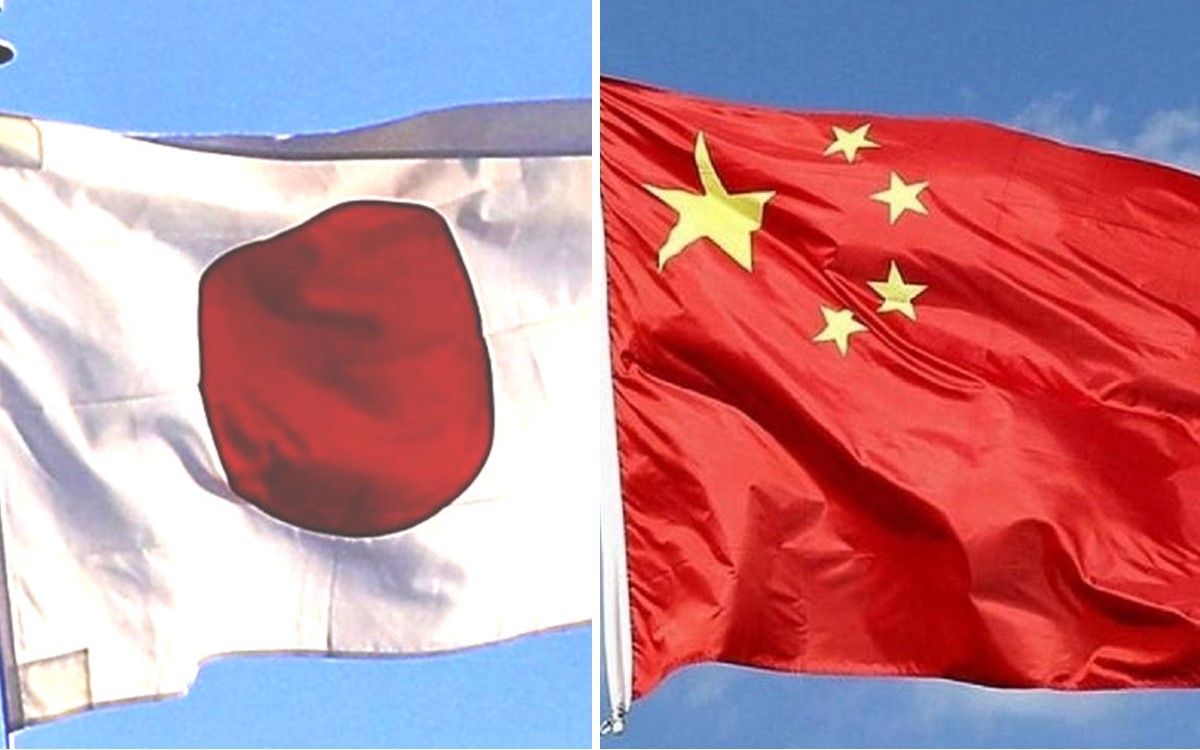
From left, The Japanese national flag, The Chinese national flag
15:06 JST, March 21, 2024
BEIJING (Jiji Press) — China has started examining whether to indict a Japanese employee of Astellas Pharma Inc. detained in China on suspicion of espionage from a year ago.
The government has repeatedly urged China to release the employee in his 50s, but his detention may be prolonged.
Foreigners are under increased scrutiny under the administration of President Xi Jinping, who attaches importance to national security.
The employee is believed to have been held March 20 last year when he was to leave China for Japan. He was officially arrested in October that year after so-called residential surveillance, in which he was interrogated at a specific facility.
On Monday, China told the Japanese government that it began examining whether to prosecute the employee. A decision on whether to indict is made within one month in principle and six and a half months at the longest.
China wants Japan to educate and instruct its citizens to comply with Chinese laws and not to engage in illegal or criminal activities in China, Foreign Ministry spokesman Lin Jian told a press conference Wednesday.
At the time of his detention, the Chinese government explained that he was suspected of violating the antiespionage law by engaging in espionage activities. But even now, it is unclear what are the specific allegations against him.
The Japanese Embassy in Beijing has held 11 consular meetings with the detained man. It has confirmed that there is no problem with his health condition, but there are strict restrictions on what can be talked about during the meetings.
The man had been stationed in China for about 20 years. He served as an executive of an organization in Beijing for Japanese companies operating in China.
The news of his detention shocked Japanese nationals living in China. Many officials have refrained from making business trips from Japan to China.
Japan’s government and business community are calling for transparency in judicial processes, but China insists that there is no need to worry at all as long as Japanese nationals engage in legal corporate activities.
In recent years, Xi’s administration has tightened its handling of state secrets and stepped up surveillance of foreigners and Chinese citizens with foreign ties.
In July last year, the revised antiespionage law came into effect to strengthen crackdowns. Since August the same year, the Ministry of State Security, in charge of uncovering spies, has been actively disseminating information on social media, calling on Chinese students studying abroad to be careful.
Top Articles in Politics
-

Japan PM Takaichi’s Cabinet Resigns en Masse
-

Sanae Takaichi Elected Prime Minister of Japan; Keeps All Cabinet Appointees from Previous Term
-

Japan’s Govt to Submit Road Map for Growth Strategy in March, PM Takaichi to Announce in Upcoming Policy Speech
-

LDP Wins Historic Landslide Victory
-

LDP Wins Landslide Victory, Secures Single-party Majority; Ruling Coalition with JIP Poised to Secure Over 300 seats (UPDATE 1)
JN ACCESS RANKING
-

Producer Behind Pop Group XG Arrested for Cocaine Possession
-

Japan PM Takaichi’s Cabinet Resigns en Masse
-

Man Infected with Measles Reportedly Dined at Restaurant in Tokyo Station
-

Israeli Ambassador to Japan Speaks about Japan’s Role in the Reconstruction of Gaza
-

Videos Plagiarized, Reposted with False Subtitles Claiming ‘Ryukyu Belongs to China’; Anti-China False Information Also Posted in Japan























